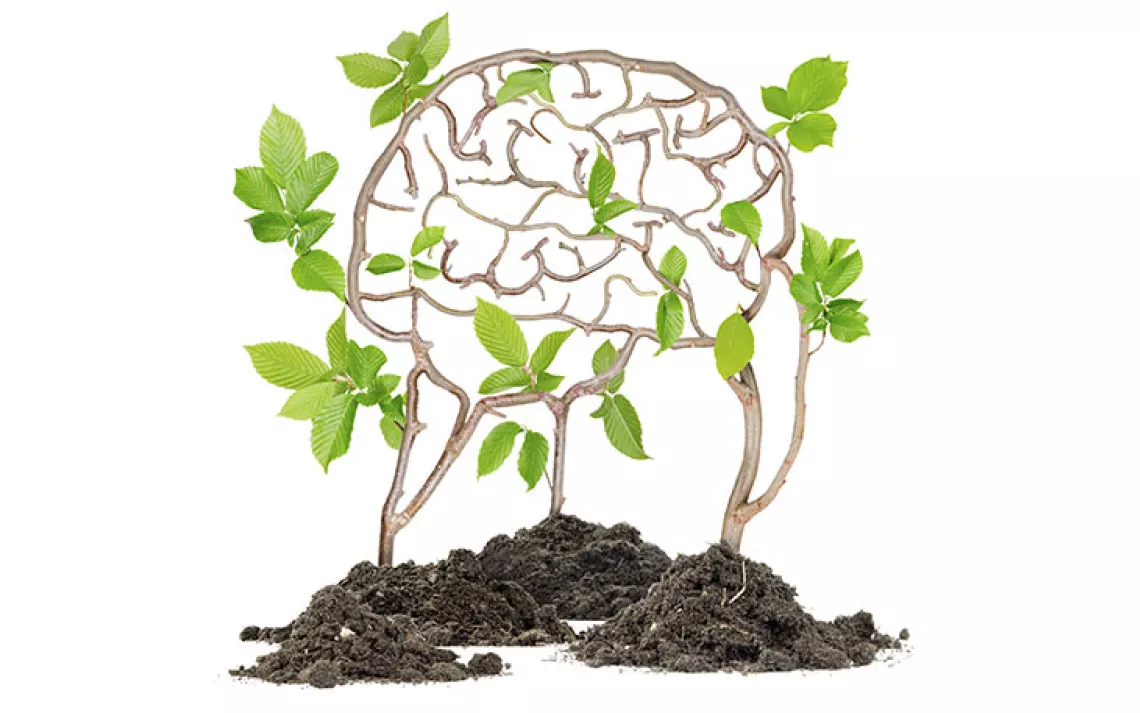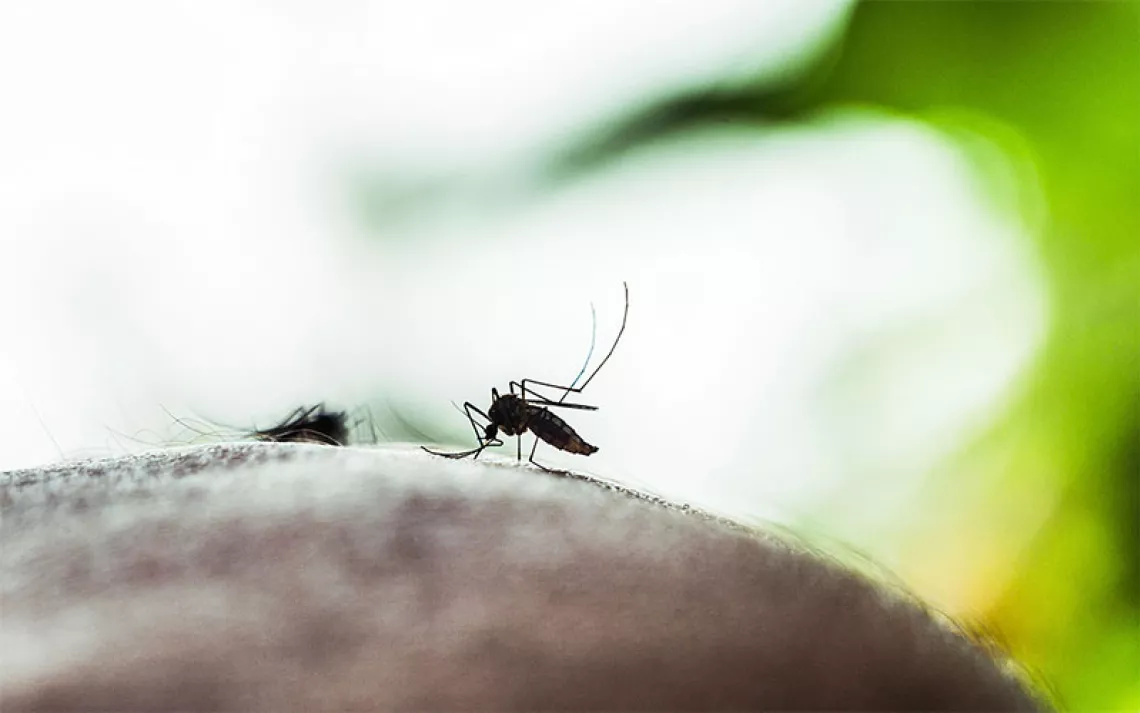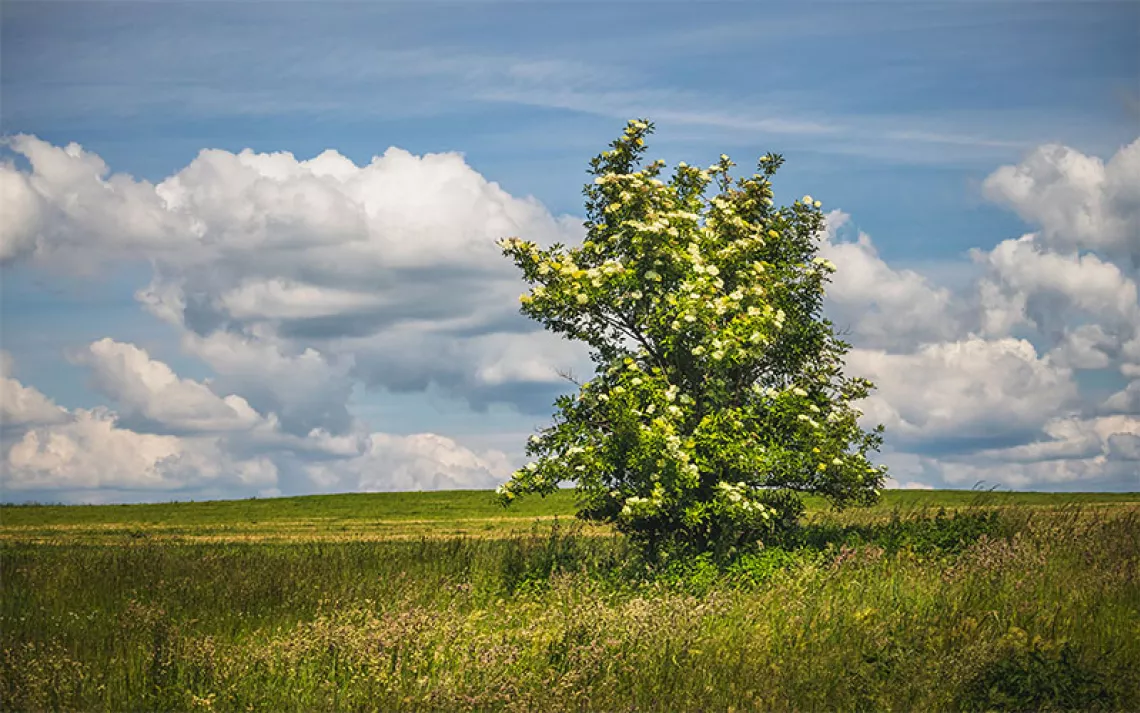Mental Health Benefits of Going Green

Photo by EtiAmmos/iStock
Environmental grief can certainly take its toll on those of us who value wildlife and a stable climate. But the good news is there’s also plenty of evidence to show that eco-consciousness can be fantastic for our mental health. In the spirit of National Self-Improvement Month (yep, there is such a thing, and no, it’s not January as we bear down on New Year’s resolutions), I checked in with psychology experts to learn about how efforts to minimize one’s carbon footprint and spend time in the outdoors can also improve a person’s emotional well-being. Here’s what I found:
1) When we contribute to our communities and the planet, we become part of something bigger than ourselves. When we are mindful of the resources we use (say, by composting food waste or collecting cans for recycling), we’re paying attention to our community, which results in a greater sense of meaning and purpose. This is according to Dr. Jared Scherz, a Mt. Laurel, New Jersey–based Gestalt therapist, who describes this as the “best antidote” to anxiety and depression. “It instills a sense of worth, and it gives people something to be passionate about, something to talk about with others.”
2) It’s important to take cues from nature. Being outside, Scherz says, teaches us to listen to our corporal selves, rather than relying solely on our overtaxed brains. And of course, our bodies’ cues help us make healthier choices about food, toxins, and human interactions. He’s had clients take off their shoes and socks, explore his wellness center’s organic garden and greenhouse, touch flowers, learn about soil, and taste home-grown herbs. “This offers a sense of the fortitude and resiliency of nature, which helps us find those forces within ourselves,” he says. “Being in nature also forces you to slow down and pay attention, to learn what your needs are, and take action to get those needs met, rather than actions to simply alleviate discomfort.” Rachel Kazez, a Chicago-based licensed clinical social worker, agrees that spending time in nature is a perfect antidote to tunnel vision. “Being in the world reminds us that there’s a lot going on—not just you and your job,” she says.
3) Amid wild nature, we feel more connected. One of the worst things we can do for our psyches is exist in a state of isolation. “The root of most depression is a fear that you aren’t worthy or wanted, that you don’t belong, that you’re separate, not connected,” says psychotherapist Jodi Aman. She likes to take patients to the trailhead across the street from her practice in Rochester, New York, and have clients lie down on the earth, taste edible plants, and, yes, sometimes literally hug trees. “When patients feel connected to nature in a general sense, that de-isolates them, and when you see things from a larger point of view, your small problems don’t seem so bad,” Aman says. “You’re less likely to take everything personally—you don’t see your existence as utter chaos, but rather as something that has greater connections.”
4) Knowledge is power. Scherz admits that climate change woes and other environmental crises can contribute to existential anxiety. “More than ever, kids and adults are suffering from a sense of dread and doom,” he says. But he explains that attempts to comprehend one’s relationship with the natural world can be constructive. “When we’re taking deep breaths and valuing clear air, we better appreciate and understand low-emission initiatives, too. And when we feel empowered, we feel infinitely more positive.”
5) Eco-consciousness offers a free lesson in self-trust. When you engage your skills to benefit the planet—think growing some of your own vegetables, bicycling, collecting rainwater, or making your own laundry detergent—you feel accomplished, and you gain trust in yourself. The result? “You experience less panic, less anxiety, and you feel more empowered and in control of your life,” Aman says. To that same end, Kazez says the simple action of tending to a plant can be quite powerful. “Doing something to care for the earth helps you feel more cared for,” she explains, adding that patients who are grieving or battling eating disorders sometimes care for plants or pets as part of treatment. “You’re seeing how you’re a piece of the puzzle—that because you interact with the ecosystem, you’re important to that system.”
6) Low-carbon activities also make you physically healthier. It goes without saying that you benefit more than the planet does when you grow your own veggies, seek more sunlight, or start biking to work. As Kazez explains, “It’s less about saying, ‘Oh I’m gonna start caring for the planet,’ but rather, ‘I’m going to return to a way of living that more closely reflects how humans and the earth developed, side by side.’” In recent decades, humans have rapidly developed technologies that make our lives easier, but also remove us further from biological cycles. “Returning to simple living tends to suit our natural rhythms—and our health,” Kazez says.
7) Environmentalism makes you better at complexity. Kazez explains that humans’ innate discomfort with nuance can disincline some people to engage with the environmental movement. “In a lot of ways the environment is in terrible condition, but in others it’s great,” she says, “and when you do something to help nature, you have to confront that am I patching a sinking ship? worry—you confront the nuance, and in the process, you learn to better live with ambiguity, to acknowledge problems, and to do what you can to address them.”
8) Being green teaches us to embrace minimalism. Western society can be pretty consumption-focused, but eco-consciousness instructs us to take only what we need, and to engage, to some extent, with the concept of subsistence living. “It teaches you to live within your means, at a speed that’s healthy for the earth, and for you, and that helps us become a lot more mindful,” Kazez says. Indeed, there’s no shortage of research to show that mindfulness makes us healthier, happier, and far less stressed.
So, what are you waiting for? Go save the planet—and yourself, too.
 The Magazine of The Sierra Club
The Magazine of The Sierra Club







